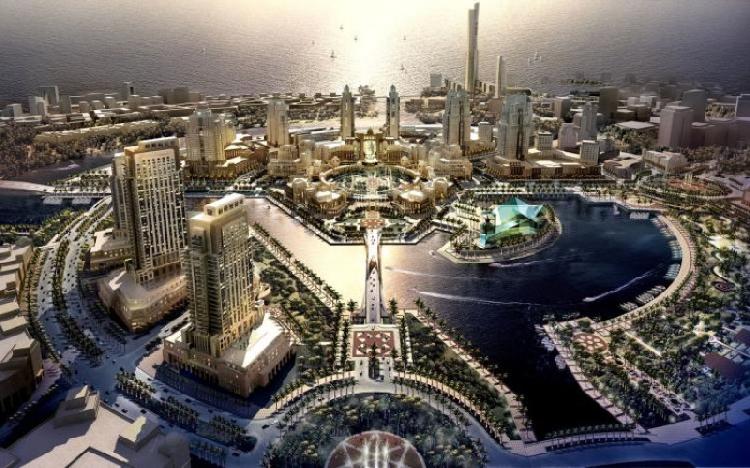
Saudi Arabia working to create a strong and diverse economy, say experts
The Saudi government’s policies to counteract the continuing decline in oil prices will contribute to a diversification of the economy, according to economists. They said the Saudi economy is on the verge of significantly increasing its efficiency and competitiveness.
One of the sessions at the ninth edition of the Global Competitiveness Forum, on January 24-26 in Riyadh, will discuss the topic of “Low Oil, High Growth: Prospering in a Low Oil Era”. Top local and international officials such as Saudi Minister of Housing HE Majed Al-Huqail and President of the General Authority of Civil Aviation HE Sulaiman Al-Hamdan will discuss the best way to mitigate the effects of declining oil prices on the Saudi economy as well as the role economic diversification has to play at this critical stage.
Deputy Chairman of the Economy and Energy Committee at the Shoura Council, Dr. Fahd bin Jumaa, said: “The recent procedures carried out by the Saudi government in light of the continuing decline in oil prices, efforts to diversify the economic base while focusing on the non-oil sector, as well as the privatization of airports and some oil companies, will support the growth of the Saudi economy and reduce the potential negative effects of the continuing decline in oil prices.”
He said the Saudi economy is in the process of becoming more efficient and facilitating better competition between companies, guaranteeing that the market operates on the principles of efficiency and good performance. This will ensure strong companies are competing in the market while weak companies are squeezed out.
Dr. Jumaa said: “The government is supporting the national economy through the creation of a committee for small and medium enterprises, among other measures.
“These measures will support the private sector, enhance competitiveness, improve the profits of financial centers and companies, and increase the sector’s total contribution to the gross domestic product.”
The creation of a body to generate jobs will help in raising the productivity of Saudi employees and increase competitiveness, said Dr. Jumaa. Allowing foreign retail companies to retain 100 percent ownership would encourage their local counterparts to improve their efficiency and performance in order to compete, he said. He also believed that the Saudi market will be more open to foreign investment.
“This way,” he said, “we focus on strengthening the non-oil economic sectors in light of the current decline in oil prices.”
Economic adviser Engineer Barjas Al-Barjas said the Kingdom needs to move swiftly to develop its oil policy, diversify income through the development of technology and industries, and conduct studies to develop other possible outputs for petroleum products such as exporting electricity.
He said: “There will be a package of reforms in light of the economic challenges that require an overhaul of the labor market, as well as applying successful methodologies adopted by developed countries.”
According to Al-Barjas, the reforms including generating jobs, facilitating investments in infrastructure, and establishing public investment and contribution funds to ensure that profitability in certain companies is not achieved at the expense of the economic development and jobs.
“If the Kingdom wants to build an economic identity, it needs to look into the incentives available, its global monetary reserves and small public debt that allows it to invest in and support non-oil companies,” said Al-Barjas.
Saudi Arabia is characterized by its large areas of undeveloped land and an abundance of human resources, said Al-Barjas. He said these factors will enable the construction of a temporary economic identity characterized by non-oil industries alongside its status as an oil producer while it builds a more permanent identity.
He pointed out that efforts to develop industries for the manufacture of cars and transport equipment, electronics, appliances, electrical equipment, and mechanical products in the short and medium terms are part of the country’s strategy to diversify, provide career opportunities for Saudis, and reduce imports from abroad.
“This requires an action plan that facilitates support and investments, training and development of human resources and expanding the role of research and development, especially in universities,” said Al-Barjas.
He believed the Kingdom should build a future identity based on human innovation and design, adding that could only be achieved through education and training as well as the construction of research and development centers.


























